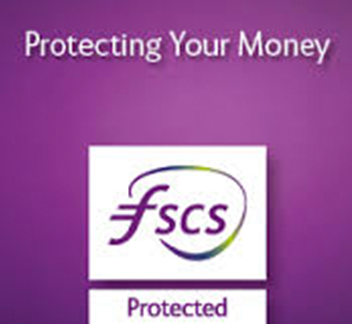
How can I avoid scams? Find out from Caroline Marks, Deputy Branch Manager
Nowadays, it‘s pretty much impossible to find anyone who’s not connected to the internet in some way. Maybe you’re signed up to social media to keep in touch with friends, use online shopping to avoid busy town centres or simply have an account for a subscription service, like Netflix.
Unfortunately, it also means it’s pretty much impossible to avoid people trying to scam you. A fraudster will disguise themselves as anyone or anything to try and trick you out of your money, bank details or personal information.
That’s why we reached out to Caroline Marks, Deputy Branch Manager at our Kent Reliance branch in Chatham, to find out more about what kind of scams are out there right now and how you can avoid them.
What are the most common types/examples of fraud that savings account holders experience in the UK?
It’s hard to label the most common type of fraud as it’s always evolving, but a common theme I’d say is where the customer is an active participant having been tricked into sending or giving money to a fraudster, such as being used as a money mule.
Although the customer may have done this unknowingly, there are often many red flags. Banks try to protect customers by developing and using systems such as Confirmation of Payee and having specific conversations (sometimes called a Scam Chat) with customers to encourage them to take a step back and really consider what they’re doing. Sometimes the banks will ask for evidence of what the transaction is for, again to stall the customer and give them time but also to provide peace of mind that the transaction is genuine.
I have sadly heard of one-too-many cases where a customer has withdrawn a large amount of cash from their bank, only for it to fall into the hands of a fraudster. I don’t say that to frighten people, but it’s a very real risk. Unfortunately, some customers do become aware that they’re a victim but may feel embarrassed or frightened, so they don’t seek help until it’s too late.
What are the latest fraud/scam trends you're seeing in the industry?
Scam texts and emails are still very prevalent. These types of scams are usually when a fraudster will send an email or a text that impersonates a company or person to trick the receiver out of their money. For example, we’re seeing fake emails and texts from parcel delivery couriers, subscription services and close relative WhatsApp messages.
I receive them very frequently myself, but luckily, I know what to look for and what to do to prevent falling victim to them. This doesn’t mean that I’m completely protected. Unfortunately, scammers find new ways to dupe people all the time. While the banks have a duty of care to help protect customers and their money, we, as customers, also need to act responsibly.
What are some best practices/preventative tips you can suggest to customers concerned about falling victim to fraud?
- Don’t click on any links in texts or emails you weren’t expecting – investigate the source first.
- Suspicious/scam texts can be forwarded to 7726. You’ll then receive a reply asking to forward the number you received the text from. Do this, then block and delete! Suspicious/scam emails can be sent to report@phising.gov.uk.
- If a customer of ours has concerns regarding their accounts with us specifically, they can email customer.security@osb.co.uk or call 0800 077 8210.
- Keep yourself up to date with new and emerging scams by visiting actionfraud.police.uk or ask for a Keeping Your Money Safe leaflet in branch.
- Be careful with what information you share on social media. Once something is on the internet, even if you delete it, it can be saved or shared and may never be truly removed. The little quizzes that people like to complete and share are a form of social engineering, where a scammer will build up a profile of you with each little piece of information. From this they may be able to work out your date of birth, your passwords and security questions, where you live….and they’ve already got your name.
- Beware of cold callers asking if you need anything doing around your home, and if you do need work doing to your property, try and get several quotes from different tradespeople. Use word of mouth and checkatrade.com to find a trusted tradesperson, and never feel pressured to pay for materials/services up-front.
- FCA Impersonation: as Kent Reliance is regulated by the Financial Conduct Authority (FCA), scammers are starting to impersonate the FCA to try and trick people out of their money. Customers receive phone calls or emails to say that their bank is being investigated and telling the customer to move their money out of their account and into a safer account, which then turns out to be the scammer’s account. If you’re worried, you can contact the FCA on 0800 111 6768.
If you’d like to report a scam or are worried about your personal information, you can get in touch with the National Cyber Security Centre.




